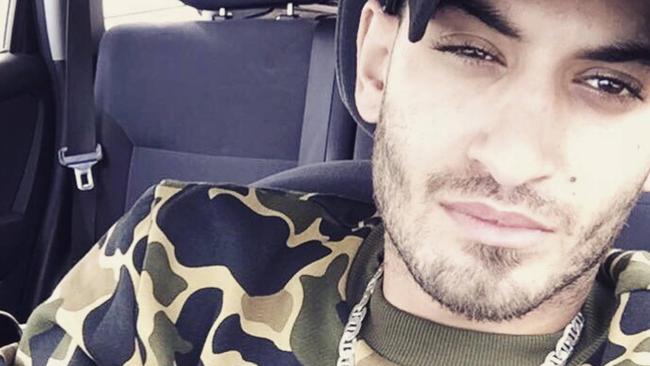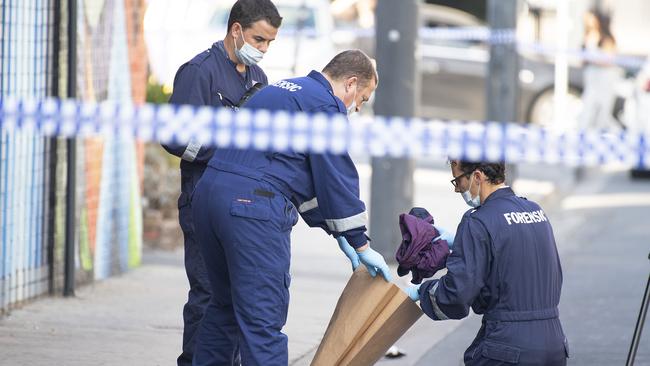Moussa Hamka jailed for hiding gun used in Love Machine shooting
A man who hid the gun used in the fatal Love Machine shooting has been jailed after his explanation for having the weapon was deemed “exceedingly far-fetched”.
Police & Courts
Don't miss out on the headlines from Police & Courts. Followed categories will be added to My News.
A man who hid the weapon used in the fatal Love Machine nightclub shooting has been jailed after a jury rejected his explanation for possessing the gun.
Moussa Hamka, 28, at the Supreme Court on Wednesday was sentenced to six years’ imprisonment after he was found guilty of assisting an offender following a murder.
Jacob Elliott, 21, and Allan Fares, 25, were last month sentenced to life behind bars over the April 2019 drive-by shooting that claimed the lives of Aaron Khalid Osmani, 37, and patron Richard Arow, 28, and injured three others.
More than two months after the shooting, police raided Hamka’s home and found the murder weapon — a .32 calibre semiautomatic pistol — wrapped in a T-shirt and hidden underneath his bedside table.

Hamka told police he came into possession of the gun through a “drop and grab” arrangement organised on encrypted messaging app Wickr and was offered $3000 by an unknown person to hide it.
His lawyers argued their client did not know the weapon was used in the shooting.
But Justice Andrew Tinney rejected the explanation, labelling it “exceedingly far-fetched”.
“You were well aware what the item was,” he said.
“The jury were satisfied beyond reasonable doubt that in the knowledge that Elliott and Fares were guilty of the Love Machine murders, you concealed the murder weapon with the purpose of impeding their apprehension, prosecution, conviction or punishment.”

The shooting was sparked after Elliott’s younger half-brother Ali Maghnie was kicked out of the Prahran nightclub.
Hamka was at Elliott’s father Nabil Maghnie’s apartment in Docklands on the night of the shooting and Justice Tinney said he would have known about the expulsion.
Justice Tinney acknowledged Hamka was not involved in the shooting but said a message needed to be sent that assisting others involved in serious crimes would be met with “strong punishment”.
Hamka was sentenced to six years’ jail with a non-parole period of four years.




